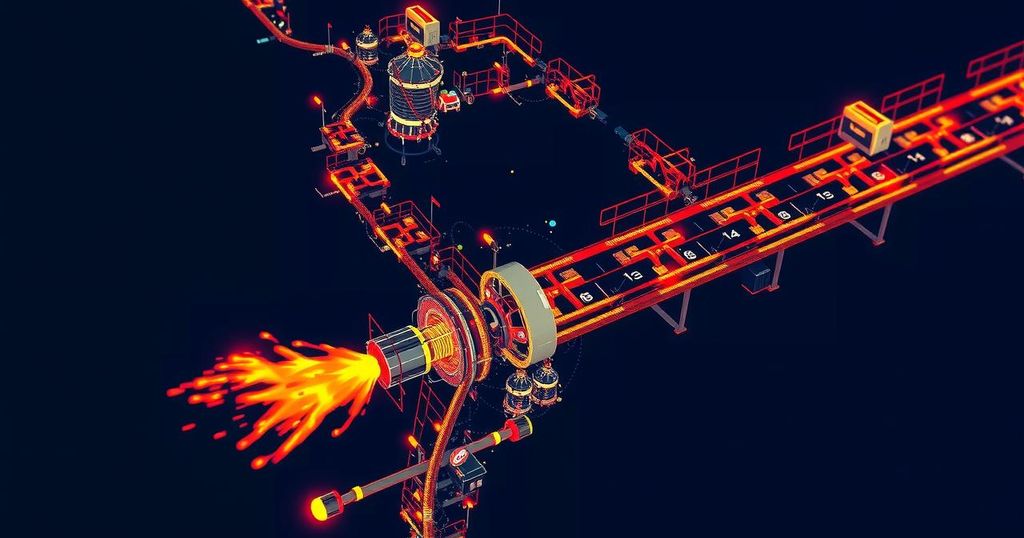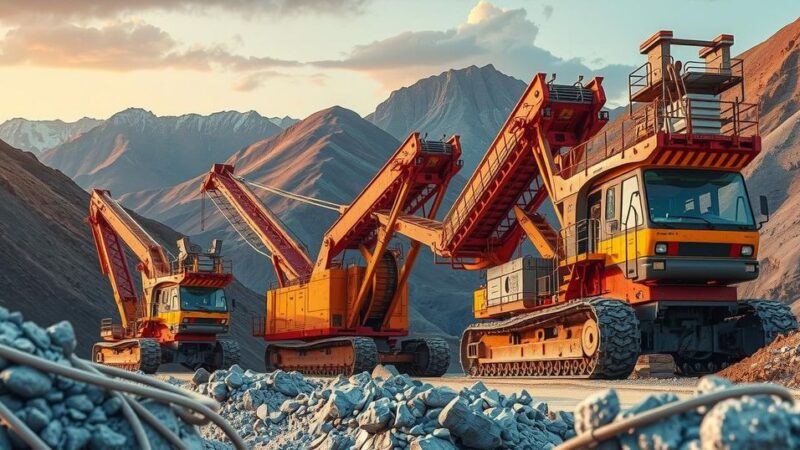Brazil’s Grupo Matrix Energia and Argentina’s TotalEnergies have partnered with Bolivia’s YPFB to transport natural gas from Argentina’s Vaca Muerta shale via Bolivia’s infrastructure. The initiative, launched on November 22, seeks to mitigate declining Bolivian exports and enhance regional energy connectivity. Additionally, YPF’s merger with Pan American Energy Group aims to bolster LNG production, highlighting Argentina’s strategic gas export ambitions.
Brazil and Argentina have forged a partnership with Bolivia’s state energy company, YPFB, to facilitate the transportation of natural gas from the Vaca Muerta shale formation in Argentina. This significant agreement, signed on November 22, aims to optimize regional energy supply by utilizing Bolivia’s extensive transport infrastructure. The collaboration is poised to invigorate gas distribution to Brazilian consumers, a response to Bolivia’s declining export capacity which necessitates alternative supply routes between Argentina and Brazil.
YPFB’s gas transportation network, covering approximately 1,000 kilometers, will be instrumental in enabling efficient natural gas flow between the countries. Argentina, known for possessing the second-largest shale gas reserves globally, seeks to enhance its position as a gas exporter, albeit it is still in the process of establishing a comprehensive pipeline network and tariff frameworks necessary for these transactions.
Additionally, TotalEnergies and Grupo Matrix Energia have entered into a sales contract related to this deal, with YPFB confirming the receipt of permits from TotalEnergies to export gas from Argentina’s Austral and Neuquen Basins to Brazil. In a strategic move to bolster production and international standing in the liquefied natural gas (LNG) sector, YPF is reportedly merging its LNG initiatives with Pan American Energy Group and Golar LNG. Notably, YPF aims to secure $2 billion in financing for its Vaca Muerta Sur pipeline, which is projected to transport an additional 390,000 barrels of oil per day to export terminals by 2025.
The collaboration between Brazil, Argentina, and Bolivia regarding natural gas transportation emerges amidst a backdrop of shifting energy supply dynamics in South America. With Bolivia experiencing a decline in its natural gas exports, Argentina is increasingly looking to leverage its substantial shale gas reserves, specifically from the Vaca Muerta formation. This partnership reflects broader regional efforts to enhance energy integration, as South American countries seek alternative supply routes to address fluctuating market demands and infrastructure challenges. The developments indicate a concerted effort by these nations to strengthen their positions in the global energy market.
In conclusion, the partnership among Brazil, Argentina, and YPFB not only facilitates the transport of natural gas but also aims to strengthen regional energy integration in the face of declining Bolivian exports. Argentina’s ambitions to become a leading gas exporter are supported by ongoing infrastructure developments and international collaborations. The strategic mergers in the LNG sector further indicate a shift towards increasing production and establishing a more robust presence in the global energy marketplace. Together, these initiatives symbolize a pivotal transition in South America’s energy landscape.
Original Source: www.offshore-technology.com






